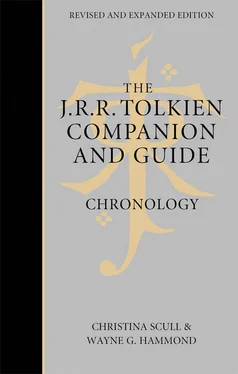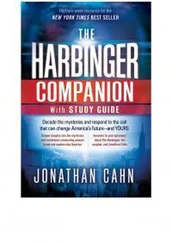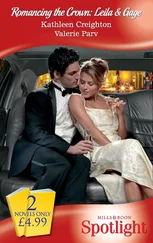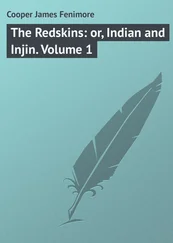10 December 1909The Headmaster of King Edward’s School, Robert Cary Gilson, presents a lecture on ‘Memory’ at a meeting of the Literary Society.
17 December 1909An Old Boys’ debate is held at King Edward’s School on the motion: ‘That the awakening of the Yellow Races is a menace to the safety of Europe.’ W.H. Payton takes part, arguing that Japan should be considered more important than China, due to its inhabitants’ intense patriotism. The motion passes overwhelmingly, 26 votes to 2.
1910
1 January 1910Ronald writes in his earliest surviving diary: ‘Depressed and as much in dark as ever. God help me. Feel weak and weary’ (quoted in Biography , p. 42). His depression is due not only to his disappointment at Oxford, but also to the difficulty of his relationship with Edith. He is torn between his feelings for her and his duty to the guardian to whom he owes so much. Although Father Francis has not specifically ordered Ronald not to see Edith again, his wishes are clear. – During this month he finds new lodgings for Ronald and Hilary with Thomas Macsherry, the director of a whiskey distillery, and his wife Julia at 4 Highfield Road, Edgbaston. Ronald will live at this address until going up to *Oxford in autumn 1911.
Spring term 1910At King Edward’s School Ronald gives a lecture to the First Class entitled The Modern Languages of Europe: Derivations and Capabilities . After he takes up three one-hour sessions and still does not finish, the master calls a halt. During the spring and summer terms, there are seventeen pupils in Class I. Hilary Tolkien is now in Class V, Section B4.
20 January 1910Ronald feels that he and Edith must discuss what they are to do. They meet without asking Father Francis for permission. They spend part of the day in the countryside discussing plans, but also visit E.H. Lawley & Sons, jewellers, at 24 New Street, Birmingham. Edith buys Ronald a pen for ten shillings and sixpence as a belated birthday present; he spends the same on a wrist watch as a twenty-first birthday present for Edith.
21 January 1910Ronald and Edith celebrate her twenty-first birthday by having tea together. But their meeting is seen and reported to Father Francis: he now forbids Ronald to meet or even write to Edith. By now, in fact, she has decided to move to *Cheltenham to live with two elderly family friends, Mr and Mrs C.H. Jessop. Ronald may see her to say goodbye on the day she leaves Birmingham, and then there is to be no contact until he comes of age three years later.
23 January 1910At King Edward’s School Ronald takes part in a debate on the motion: ‘That the vulgar are the really happy.’ He argues that there is no reason why this should be true of the vulgar as a class, and the fact that vulgarity and happiness sometimes accompany one another is no proof. Vincent Trought thinks that ‘the man who ate with his mouth too full could never be really happy’, Rob Gilson argues that education is ‘the direct opposite of vulgarity’, and W.H. Payton speaks briefly in the negative ( King Edward’s School Chronicle , n.s. 25, no. 179 (March 1910), pp. 7, 8). The motion fails, 10 votes to 17.
11 February 1910The King Edward’s School Debating Society addresses the motion: ‘That lawn-tennis is physically and socially a superior game to cricket.’ Christopher Wiseman demonstrates ‘from personal experience of “a friend,” that cricket does not provide sufficient exercise for a young boy’, while Vincent Trought inveighs ‘against those who wished to reject our national pastime and accept a foreign upstart in its stead’ (‘Debating Society’, King Edward’s School Chronicle , n.s. 25, no. 179 (March 1910), pp. 8, 9). The motion passes, 15 votes to 7.
12 February 1910Ronald plays in a 1st XV home match against Kings Norton. King Edward’s School wins, 11 to 8.
15 February 1910Ronald plays in a 1st XV home match against Birkenhead School, Oxton, Cheshire. King Edward’s School wins, 20 to 0.
16 February 1910Ronald writes in his diary that he had prayed that he would see Edith by accident, and his prayer had been answered. ‘Saw her at 12.55 at Prince of Wales [presumably the Prince of Wales Theatre on Broad Street]. Told her I could not write and arranged to see her off on Thursday fortnight. Happier but so much long to see her just once to cheer her up. Cannot think of anything else’ (quoted in Biography , p. 43). See note .
18 February 1909King Edward’s School student R.B. Naish reads a paper on Robert Browning at a meeting of the Literary Society.
19 February 1910Ronald plays in 1st XV home match against the University of Birmingham. King Edward’s School loses, 5 to 6.
21 February 1910Ronald writes in his diary: ‘I saw a dejected little figure sloshing along in a mac and tweed hat and could not resist crossing and saying a word of love and cheerfulness. This cheered me up a little for a while. Prayed and thought hard’ (quoted in Biography , p. 43).
23 February 1910Ronald and Edith meet again accidentally.
25 February 1910The Annual Parliamentary debate is held at King Edward’s School on the motion: ‘That the State recognises the right of its citizens to work, and undertakes the responsibility of providing it, if necessary.’ W.H. Payton takes part, arguing that ‘the scheme would prove not only inefficient, but demoralising to the character of the community’ and advocating tariff reform as ‘the only true remedy for the evil’ ( King Edward’s School Chronicle , n.s. 25, no. 179 (March 1910), p. 9). The motion fails, 8 votes to 12.
26 February 1910Ronald plays in a 1st XV away match at Elmdon Road, against Bromsgrove School. King Edward’s School loses, 8 to 21. – At least one of Ronald’s unplanned meetings with Edith has been reported to Father Francis. Ronald writes in his diary that he has ‘had a dreadful letter’ from his guardian ‘saying I had been seen with a girl again, calling it evil and foolish. Threatening to cut short my University career if I did not stop. Means I cannot see E[dith]. Nor write at all. God help me. Saw E. at midday but would not be with her. I owe all to Fr. F[rancis] and so must obey’ (quoted in Biography , p. 43).
2 March 1910Edith leaves Birmingham for Cheltenham, Ronald has a last glimpse of her as she rides her bicycle to the station. Although Edith will miss Ronald, she will now live in greater comfort, and she will be able to play the piano as much as she likes, a pleasure forbidden her by Mrs Faulkner.
4 March 1910W.H. Payton reads a paper on The Ingoldsby Legends at a meeting of the King Edward’s School Literary Society.
11 March 1910In another Latin debate at King Edward’s School Ronald plays the part of a Greek ambassador, ‘Eisphorides Acribus Polyglotteus’, and speaks entirely in Greek. On another such occasion, according to Humphrey Carpenter, Ronald ‘astonished his schoolfellows when, in the character of a barbarian envoy, he broke into fluent Gothic; and on a third occasion he spoke in Anglo-Saxon. These activities occupied many hours …’ ( Biography , p. 48).
12 March 1910Ronald plays in a 1st XV away match at Elmdon Road, against the Old Edwardians II. King Edward’s School wins, 30 to 6.
18 March 1910Former student E. Muncaster reads a paper on ‘Witchcraft’ at a meeting of the King Edward’s School Literary Society.
Читать дальше












